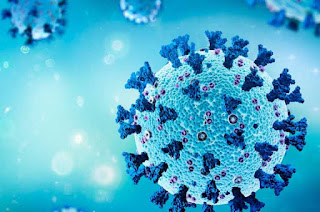The study, led by Duke researcher Stephanie N. Langel, Ph.D., medical instructor in the Department of Surgery, demonstrated the potential of a COVID vaccine that works through the mucosal tissue to neutralize the SARS-CoV-2 virus, limiting infections and the spread of active virus in airborne particles.
The findings are published today in the journal Science Translational Medicine.
“Considering most of the world is under-immunized -- and this is especially true of children -- the possibility that a vaccinated person with a breakthrough infection can spread COVID to unimmunized family or community members poses a public health risk,” Langel said. “There would be a substantial benefit to develop vaccines that not only protect against disease, but also reduce transmission to unvaccinated people.”
Langel and colleagues -- including teams from the vaccine developer, Vaxart, and a clinical research non-profit, Lovelace Biomedical Research Institute -- tested a vaccine candidate that uses an adenovirus as a vector to express the spike protein of the SARS-CoV-2 virus. The human vaccine is designed to be taken as a pill.


.jpg)



.jpg)

